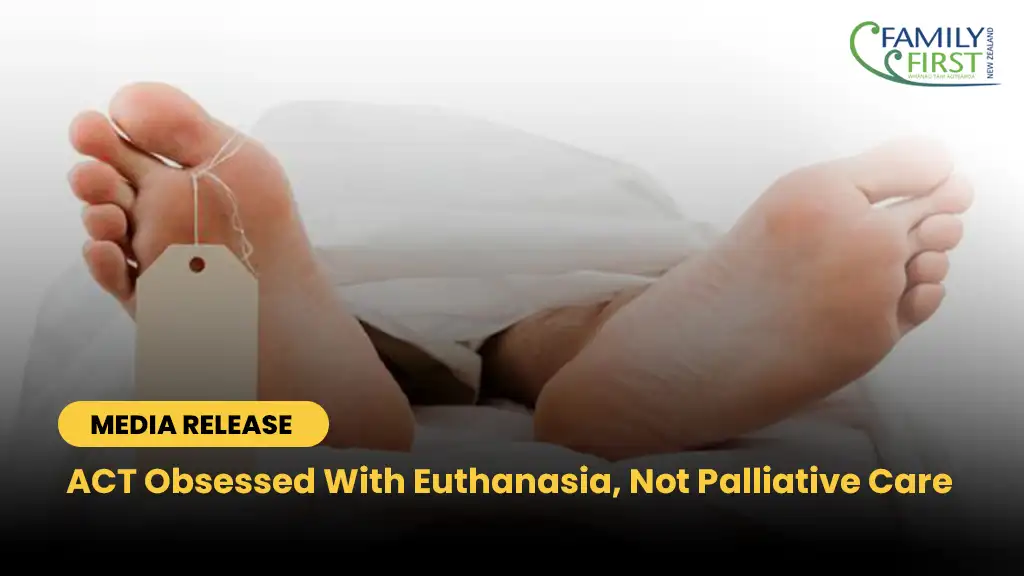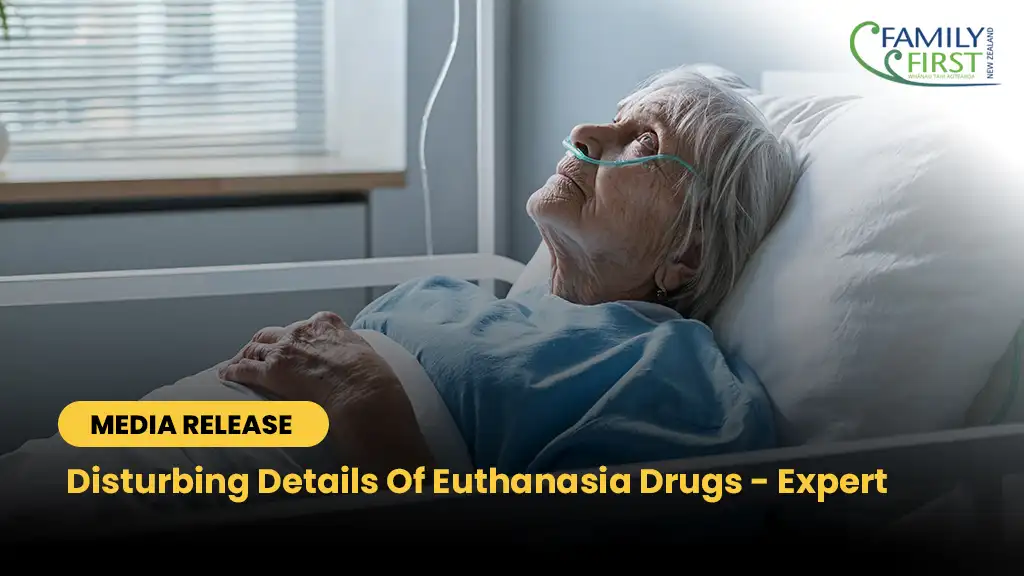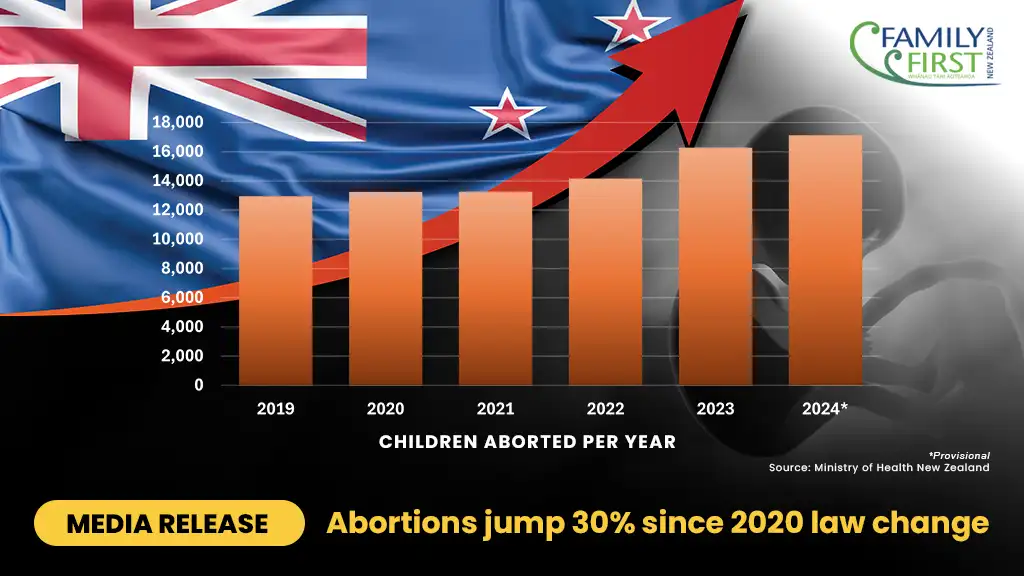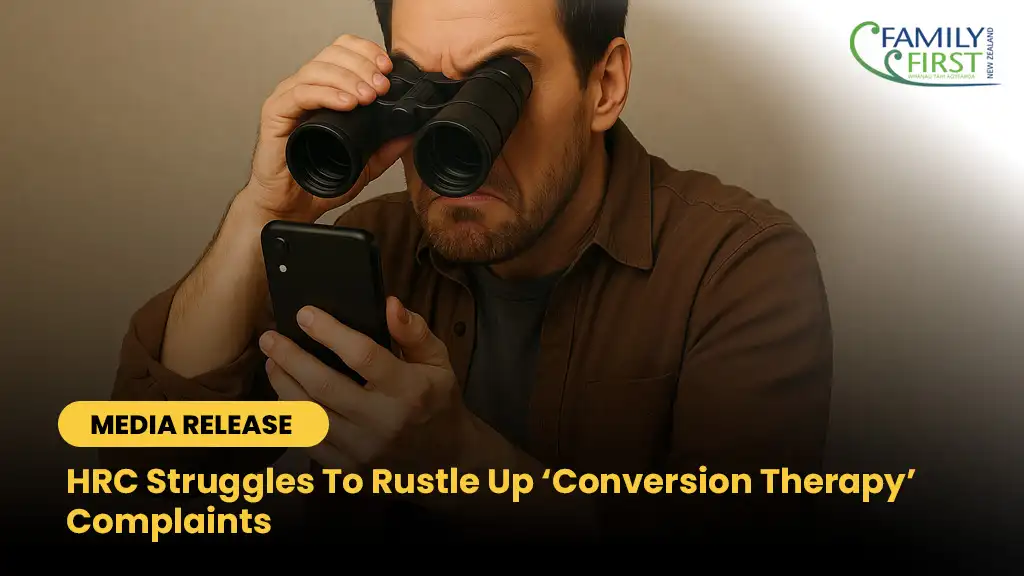MEDIA RELEASE – 25 August 2025
ACT’s latest attempt to broaden euthanasia and physician assisted suicide (PAS) puts even more New Zealanders at risk. Not just those who are sick, aged, or ailing – but also health and medical professionals, hospices and care homes.
The members bill being re-introduced by ACT MP Todd Stephenson reads like a David Seymour wish list and echoes the recommendations of the Ministry of Health review that was overseen by Mr Seymour as the Associate Minister in charge.
The immediate red flag and warning is wanting to align New Zealand’s practices with Canada, a country where euthanasia/PAS there is now the fifth leading cause of death, and is expanding to include the mentally ill and with discussions now around terminating sick children as well.
The proposed Member’s Bill also widens the number of conditions captured, and removes what Mr Stephenson euphemistically calls a ‘temporal requirement’ – that is, one does not need to be six months from death; in fact, it could now be any length of time.
Echoing the Ministry of Health’s call to ensure even greater access, the conscience rights of doctors and other health professionals are being effectively removed. Whilst not explicitly stated, the mischief is in the drafting where medical and health professionals must align with the Code of Health and Disability Services Consumers’ Rights – effectively meaning they must provide the services.
“The ACT Party talks a lot about choice, but the choice and autonomy of doctors and nurses is being removed” says Simon O’Connor, Director of External Engagement.
In its review, the Ministry was insistent that more doctors and nurses must be involved; that more New Zealanders must seek the option of assisted suicide; and that greater efforts must be made to promote euthanasia/PAS to various cultural groups, and doubly so where said cultures are resistant to the practice.
Equally worrying, the ability of hospices and other care facilities to decline to have euthanasia practiced is being removed.
“Again, while Stephenson, Seymour, and others talk about choice they are also forcibly removing the choice from these facilities. Patients who want nothing to do with euthanasia have nowhere to hide, even in palliative care and hospices. If this law was to pass, those in care facilities will always have to ask – is the doctor coming to care or kill me?” says Mr O’Connor.
“Ultimately, doctors and nurses are no longer being treated as ethical professionals, but dispensers of requested services. This is the antithesis of medicine, but the hallmark of a culture of death.”
Ironically, this amendment bill is larger than the original legislation – proving how flimsy the End of Life Choice Act 2020 is, and also that this law was only intended to open the door so to allow even greater access to death.
We are not surprised that this bill is coming from ACT. Recently one of the key supporters of the euthanasia law David Farrar admitted this: “The cost of an assisted death to the taxpayer is $1,087.20 so a total cost of say $500,000 a year compared to the cost of palliative care of $186 million a year. You could even argue that euthanasia reduces the cost of palliative care.”
While conscious this is only a Members Bill and needs to be drawn via a ballot, Family First urges MPs to reject these amendments and encourages MPs to simply look at the horrible developments in Canada and elsewhere to serve as a warning of where this obsession with death, as demonstrated by the ACT party, will lead.




